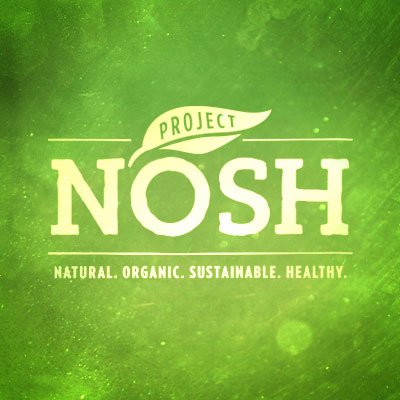
Leaders of Organic Non-Profits Discuss Key Issues for 2020
I hope everyone had an enjoyable holiday and that your 2020 is already off to a great start.
For our annual look-ahead piece, I asked several leaders of organic-related non-profit organizations to discuss this upcoming year. More specifically, what needs to get accomplished and what they would like Organic Insider readers to know about.
Below are edited versions of their answers.
Andrew Kimbrell
Executive Director of the Center for Food Safety
As it has been for 22 years, the Center for Food Safety’s (CFS) goal for the next year is to continue to 1) protect the integrity of the organic standards and 2) work to evolve the organic ethic.
The first goal is critical, as the National Organic Program/USDA continues to act illegally and unilaterally to undermine the standards and cater to industrial forces within organic. This includes allowing contaminated compost in organic (which CFS defeated in court), altering the “sunset” regulations (which CFS challenged in court but then were allowed under the most recent Farm Bill), and allowing the organic certification of non-soil based hydroponics (a CFS court challenge to this will be filed this month).
We all need to convey the message in 2020 that organic is not just a “life style,” it as a “life saver” for us and the planet.
Jeff Moyer
CEO of Rodale Institute
We need more organic farmers and more organic acres, so in 2020, Rodale Institute is prioritizing growing the organic movement by expanding the reach and impact of our research.
With our three new Regional Resource Centers, 2020 will see Rodale Institute consultants on the ground in several of our nation’s agricultural centers like Iowa, Georgia and California, sharing world-renowned research with regional farmers. We’re looking forward to releasing new data about agriculture’s impact on soil health, water quality and human health from new finely tuned research trials.
2020 will also see the public launch of the Regenerative Organic Certification, a new standard that Rodale Institute has spearheaded with partners like Patagonia, Dr. Bronner’s and more. The Regenerative Organic Certification not only supports farmers that are healing the planet but also allows consumers to make informed purchasing choices and ensure that the products they buy not only uphold the organic standard but also the three additional pillars of soil health, animal welfare and social fairness.
Mark Kastel
Founder of OrganicEye
Forcing the USDA to do its job and holding certifiers and agribusinesses accountable will be “job one” for the team at OrganicEye in 2020. In spite of the resistance and blowback from powerful industry and governmental officials — that I’ve encountered in my watchdog work over the past decades — we won’t back down on these important issues.
After years of listening to the corporate lobbyists bragging about oversight and enforcement during the Obama/Vilsack/McEvoy era, it was pressure from organic stakeholders that finally resulted in 75% of imports from the Black Sea being decertified. It’s important to remember that, together, we can have an impact.
Ronnie Cummins
International Director of the Organic Consumers Association
Organic consumers, farmers and businesses need to get politically involved in 2020, not just because the future of organic food and farming is on the line, but the literal future of the planet as well. After 25 years of struggling to preserve and strengthen organic standards, it’s time to move beyond just fighting defensive battles and go on the offensive, electing political candidates at all levels, local, state and national, who support organic food and farming, a stable climate and a system of participatory democracy, economic justice and civil rights.
Lisa Stokke
Executive Director of Next7
In the near future, public awareness of the gradual changes over the years to the USDA organic label is important to facilitate the change we need. While most organic farmers continue to grow food organically in the way that people have come to expect, much of the food that is widely available in stores is not what most consumers would expect from the label “organic”.
A new way to make real food choices is coming, based upon actual nutrient value, determined by responsible farming and stewardship. Many people know that the way food is grown – in a functioning biological system, in deep collaboration with Nature – is the best way to nourish ourselves and protect the planet.
Next7.org is committed to supporting that through the new initiative we’re launching in 2020: Food for Future — partnering with the Bionutrient Food Association, farmers and scientists.
Jonathan Rosenthal
Interim Executive Director of The Cornucopia Institute
Lax enforcement by the USDA, coupled with troubling regulatory decisions, has jeopardized consumer trust in the organic food label, while creating unfair competition for ethical organic producers, particularly dairy, grain and soil-grown produce farmers. We will continue our watchdog role in 2020, reporting from National Organic Standards Board meetings, while holding the USDA accountable to their promises regarding the Origin of Livestock rule and fraud prevention.
Karen Howard
CEO and Executive Director of the Organic & Natural Health Association
Our commitment to organic needs even more nurturing in 2020, given the slow erosion of standards, reduced support from federal leaders and fracturing of interests into niche areas.
Gene editing is the newest threat, standing at the front door and set to undermine the identity and value of organic ingredients. This will necessitate creating science and testing modalities so that sound information on GMO 2.0 reaches the hands of the industry and consumers. This is the year, an election year, to make new friends with like-minded causes and advocate for the diverse food, farm and environment concerns of our consumers.
Staying true to consumer demand for transparency requires a collective effort, without which, our stature grows small.
 |
With gratitude, 
Max Goldberg, Founder |
Quick Hits
* Presidential candidate and fellow Brown University alum Andrew Yang eats Nativas’ organic cacao goji power stacks while on the campaign trail.
* A 1000-year-old West African ginger drink — from Ginjan Bros. — gets new life in Harlem.
* Carillon Miami Wellness Resort has a “grocery guru” on staff who coaches guests on making healthy choices at the supermarket.
* AQUA Carpatica, which sources its water from a UNESCO protected site, has received a business excellence award from the Consulate General of Romania.
* Organic, plant-based Gracias Madre is Newport Beach’s newest cocktail spot.
* Former Organic Trade Association executive Caren Wilcox will serve as the inaugural executive director of The U.S. Hemp Growers Association.
* If you genetically modify children in China, you are going to jail.
New Organic Products
Sprouted Tortilla Chips from Thrive Market
Thrive Market has introduced a line of organic tortilla chips that are made with sprouted ancient grains, and each batch is cooked in organic coconut oil. They come in three flavors -- red corn & flaxseed, blue corn and sorghum."Cream-on-Top" Whole Milk from Lulubelle's Creamery
Long-time natural foods entrepreneur Chuck Eggert has launched Wild Rose Foods, which is focused on products rooted in Oregon agriculture. One of the first brands under Wild Rose Foods is Lulubelle’s Creamery, a new dairy brand, and it is offering“cream-on-top” whole milk sold in half-gallon glass bottles in both plain and chocolate.Nipple Balm by Lansinoh
Lansinoh, a global leader in the breastfeeding market, has come out with a certified organic nipple balm. Made with argan and coconut oils, it has been handcrafted to care for tender nipples and dry skin. The company says it is safe for baby and specially designed for breastfeeding, with no smell, taste or color.Weekly News Summaries


Marine Veteran And Organic Farmer Sues Whole Foods For Fraud
By Dorian Hargrove and Mari Payton
Marine Corps Sergeant Colin Archipley and his wife Karen say Whole Foods Market broke their contract and nearly shattered their dreams of running a successful organic hydroponic farm. Dave Chapman, Executive Director of The Real Organic Project, an organization that fights against hydroponics being allowed in organic, gives his take on the matter.

Study: Organic Crop Practices Impact Long-Term Soil Health
By Krishna Ramanujan
According to Cornell University research published in the journal Agricultural Systems, organic farming practices and plantings can have lasting outcomes for future soil health, weeds and crop yields.
Monsanto Attempts Defense That Would Negate All Glyphosate Lawsuits
By Dan Nosowitz
If successful, it will be very difficult for other lawsuits to proceed.


Are Mexican Avocados the World's New Conflict Commodity?
By Saeed Kamali Dehghan
The fruit’s global surge in popularity has fueled exports and attracted violent cartels to the trade in ‘green gold’.
Organic Valley Was Fined for Dumping Milk Into an Oregon River
By Nikita Richardson
Organic Valley was fined $26,000 because one of its producers dumped milk products into a tributary, which turned the creek milky white for three-quarters of a mile.

Philippines approves Potentially Unsafe GMO 'Golden Rice' for Food and Feed
According to an announcement by the International Rice Research Institute, the Philippines Department of Agriculture-Bureau of Plant Industry has stated that it has found GMO golden rice to be "as safe as conventional rice" -- even though no animal feeding studies have been released to the public that could attest to this.


Thrive Market Launches First G.A.P. Certified South American Beef Supplier
Global Animal Partnership (G.A.P.), North America’s most comprehensive farm animal welfare standards program, welcomes its first beef supplier in South America: Range Patagonian Grass-Fed Beef.

Blockchain Enhances Traceability of Organic Cotton from Farm to Consumer
By Brian Njuguna
A new blockchain pilot project offers a physical and digital trail of organic cotton, making traceability, transparency and reliability inevitable.

USDA Clarifies Meat and Poultry Labeling Claims
By Philip Brasher
Under the new guidance issued by the USDA's Food Safety and Inspection Service, beef cannot be labeled “grass-fed” unless the cattle were fed grass or forage 100% of the time after being weaned.
The material in this newsletter is copyrighted and may be reprinted by permission only. All requests must be in writing. Please use our contact form to request republication rights.
Newsletter Archive
Quick Hits
* Presidential candidate and fellow Brown University alum Andrew Yang eats Nativas’ organic cacao goji power stacks while on the campaign trail.
* A 1000-year-old West African ginger drink — from Ginjan Bros. — gets new life in Harlem.
* Carillon Miami Wellness Resort has a “grocery guru” on staff who coaches guests on making healthy choices at the supermarket.
* AQUA Carpatica, which sources its water from a UNESCO protected site, has received a business excellence award from the Consulate General of Romania.
* Organic, plant-based Gracias Madre is Newport Beach’s newest cocktail spot.
* Former Organic Trade Association executive Caren Wilcox will serve as the inaugural executive director of The U.S. Hemp Growers Association.
* If you genetically modify children in China, you are going to jail.



